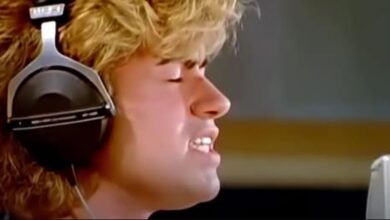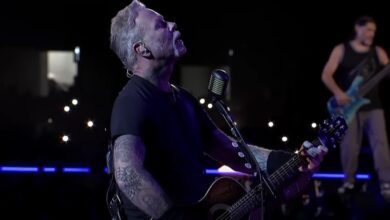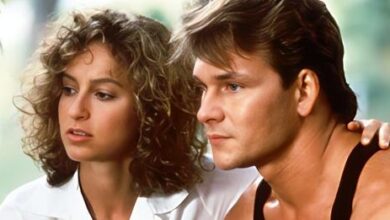Plant had incredible stage presence and perhaps the greatest voice ever in rock to boot (Led Zeppelin Live ’79)
Led Zeppelin’s live performance of “Rock and Roll” at the Knebworth Festival on August 11, 1979, was a part of their grand return to the UK stage after four years. This performance was one of the two massive concerts held at Knebworth Park, which drew huge crowds, with the band playing to over 100,000 fans. The setlist for this concert was extensive, including hits like “The Song Remains the Same,” “Black Dog,” and “Stairway to Heaven,” before concluding with encores that included “Rock and Roll,” “Whole Lotta Love,” and “Communication Breakdown”.
Despite the anticipation and the large audience, Led Zeppelin’s performance at Knebworth was met with mixed reviews. Band members themselves felt the pressure of the event, with performances described as fluctuating between being “breathtaking” and “musically woefully inept” at times. The band’s manager, Peter Grant, even remarked that their show was “a bit rusty,” highlighting the challenges they faced in delivering a performance that met the high expectations set by their previous successes and the significant hype surrounding their return.
The concerts were both audibly and visually recorded, with the intention of possibly using the footage for a television special, although this plan was never realized. It wasn’t until 2003 that some of this footage was officially released, included in the Led Zeppelin DVD after being digitally remastered. The Knebworth concerts also marked the debut live performances of “Hot Dog” and “In the Evening” from their album “In Through the Out Door,” which experienced production delays and was released shortly after these concerts.
The Knebworth Festival in 1979 was significant not only for its scale but also for its place in Led Zeppelin’s history, representing one of their final major live performances before the death of drummer John Bonham in 1980, which led to the band’s subsequent dissolution. Despite the mixed critical reception and the band’s own acknowledgment of their uneven performance, these concerts remain a monumental chapter in the legacy of Led Zeppelin, capturing a moment when they were transitioning in the face of the evolving music scene of the late 1970s.





